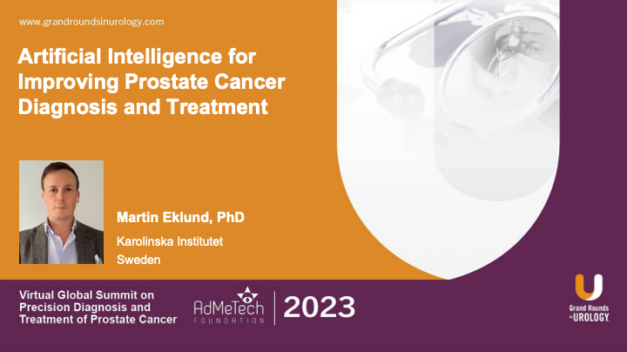Artificial Intelligence for Improving Prostate Cancer Diagnosis and Treatment
In this 10-minute video, Martin Eklund, PhD, Professor in the Department of Medical Epidemiology and Biostatistics at the Karolinska Institutet in Stockholm, Sweden, describes the integration of artificial intelligence (AI) into every stage of prostate cancer care.
Traditionally and in the modern era, the process of prostate cancer (PCa) care has followed the path of prostate-specific antigen (PSA) testing leading to biopsy, then pathology, and finally management and treatment. However, every step along this path has opportunities for improvement. PSA testing has poor sensitivity and specificity, and prostate biopsy (especially standard systematic biopsy) often detects indolent cancers, among other insufficient operating characteristics. Pathology assessments have a high operator variability and are burdened with scarce resources. There is a lack of predictive biomarkers to guide treatment decisions, and overall, subjective assessments provide the basis for management and treatment.
To address these shortcomings and better individualize care delivery, there has been a wealth of research focused on developing risk-prediction and artificial intelligence (AI) models. The 2015 Stockholm3 (STHLM3) study introduced a diagnostic model to identify high-risk PCa that performed significantly better than PSA testing alone and suggested it could reduce unnecessary biopsies. Then, a 2021 trial used the STHLM3 test to risk-stratify patients before moving to MRI-targeted biopsy, proving to be an improved prostate screening method over traditional methods.
Read More
